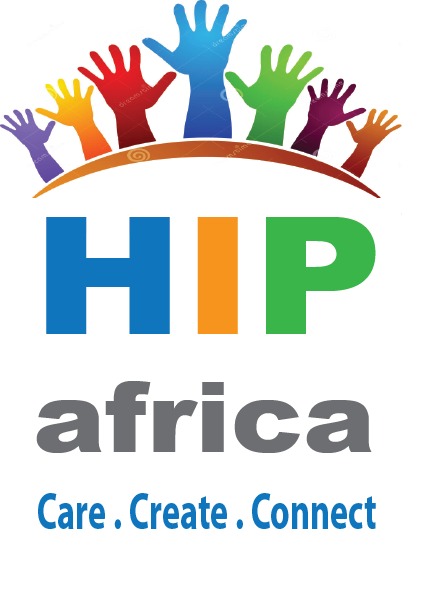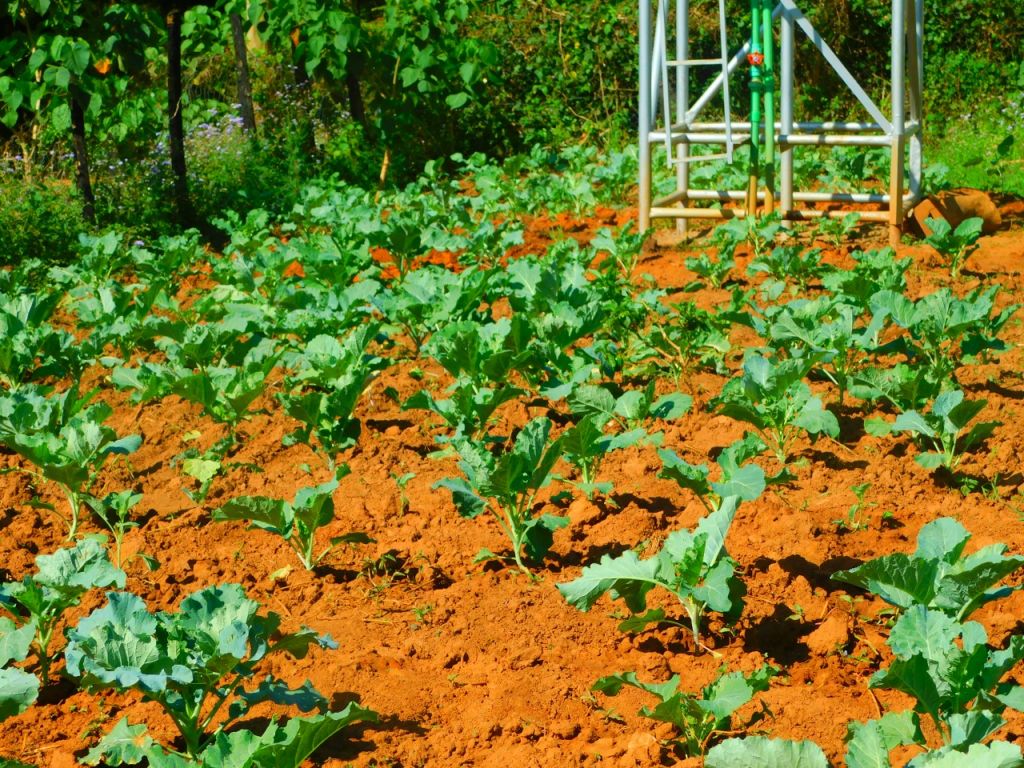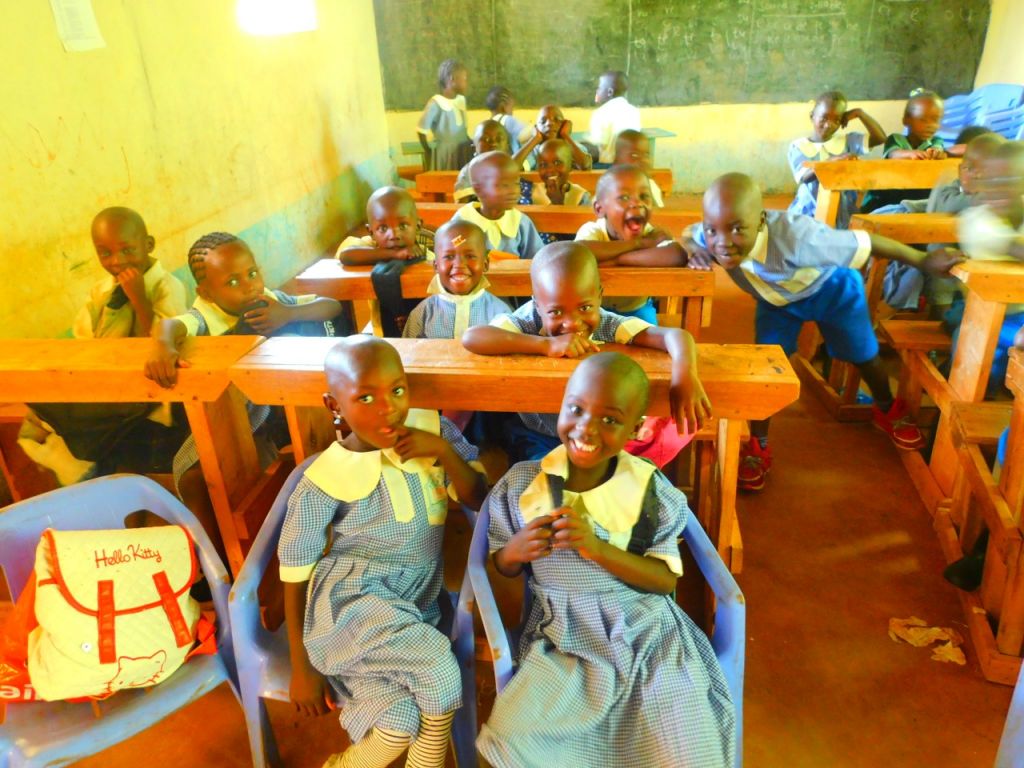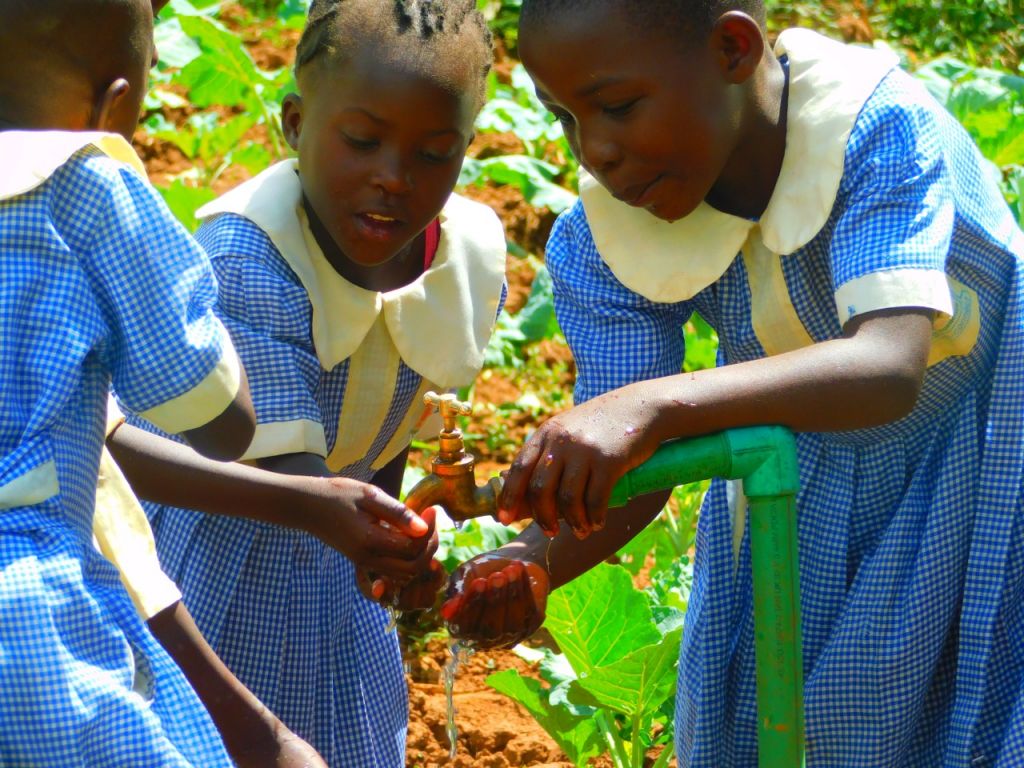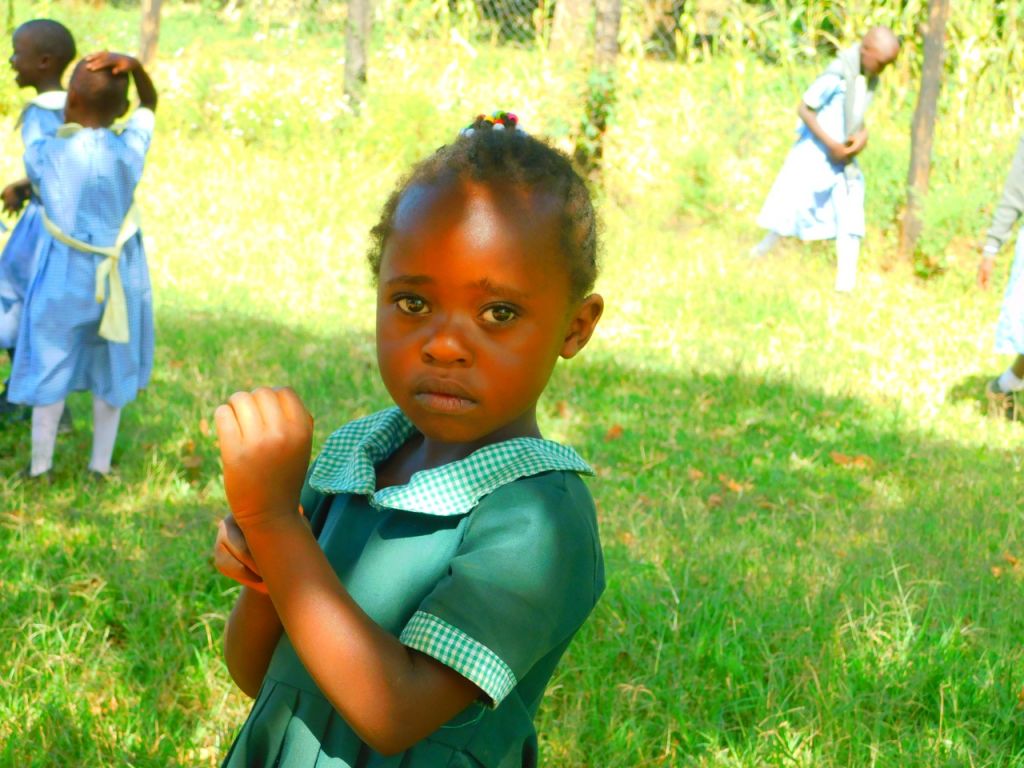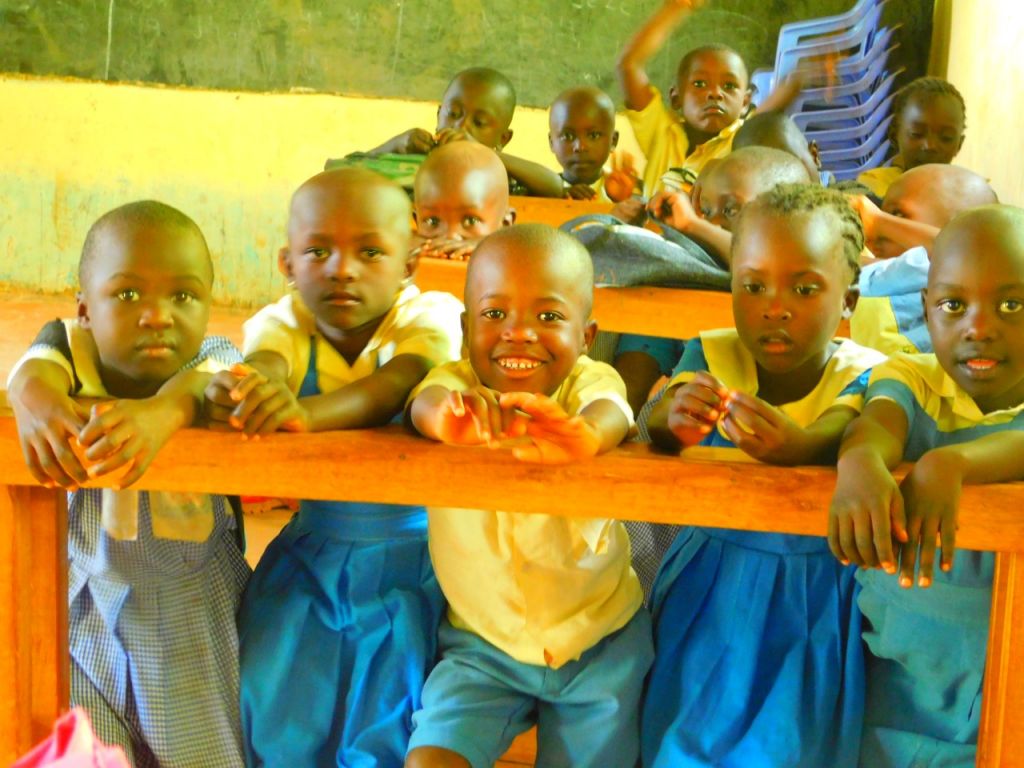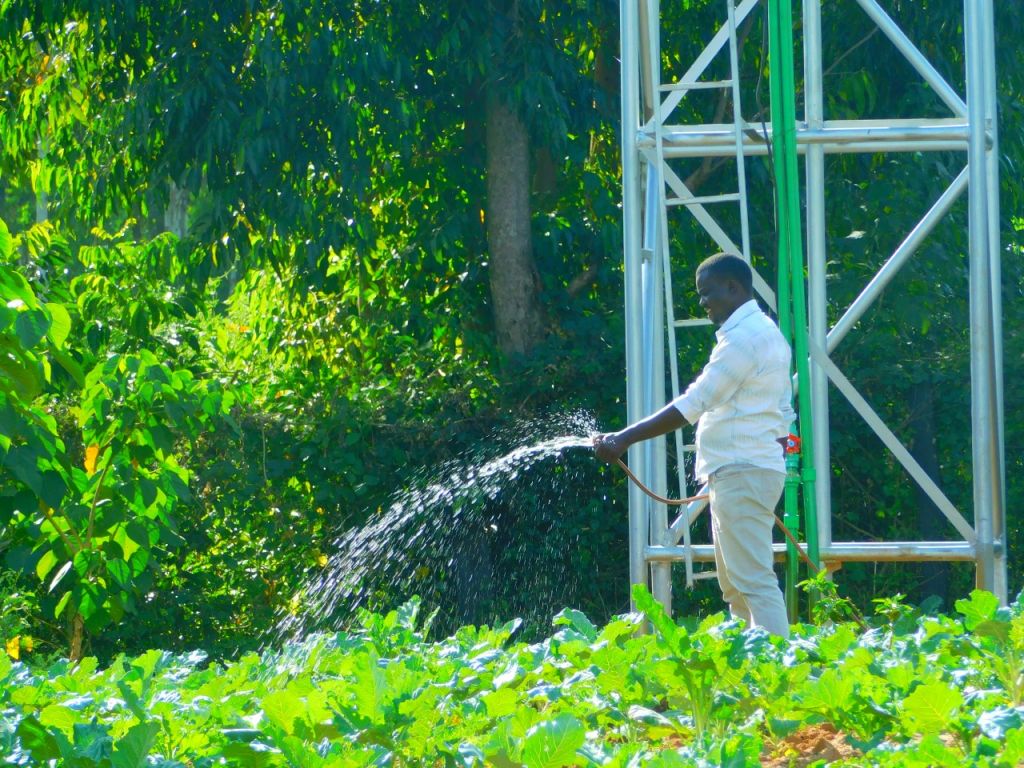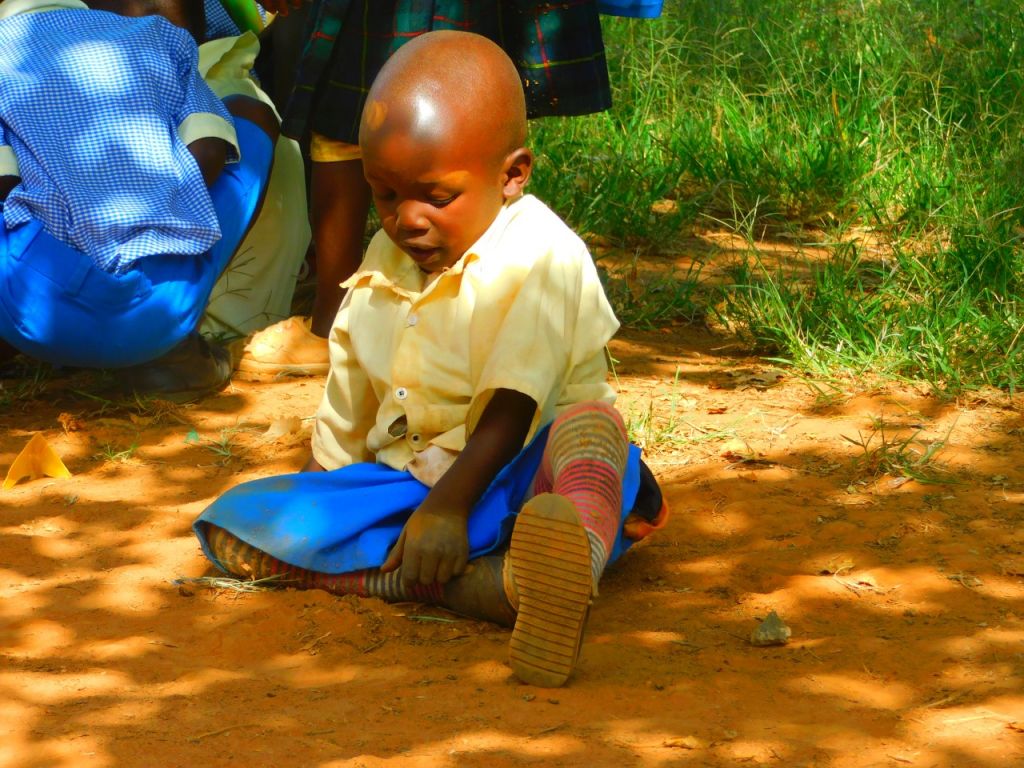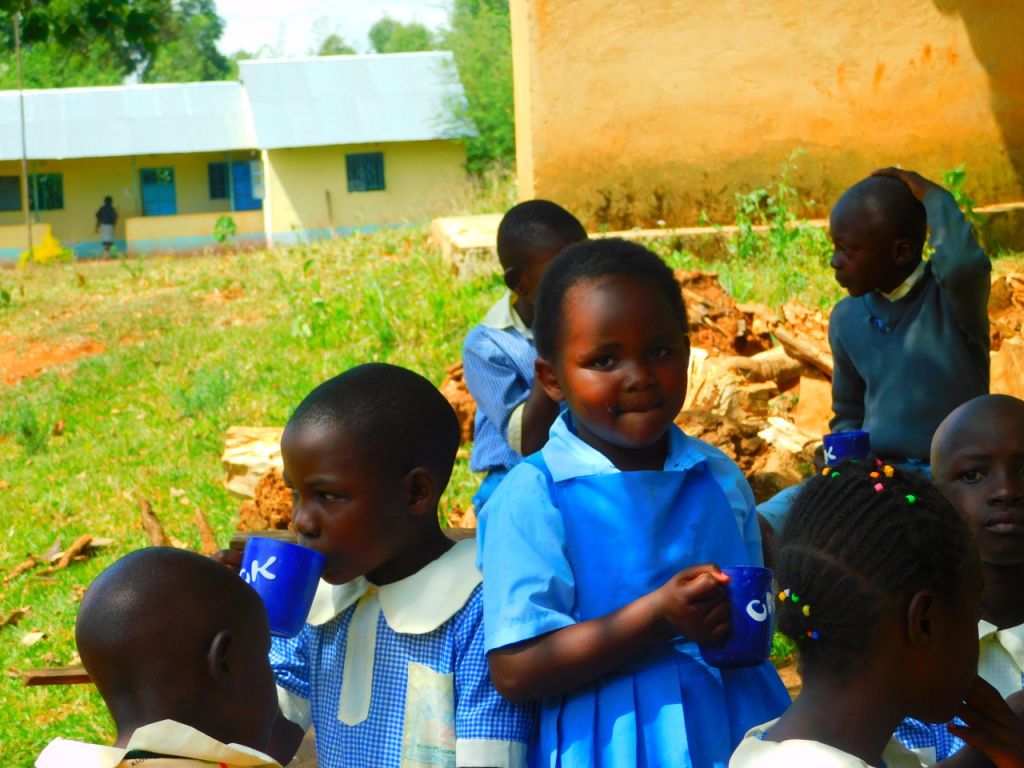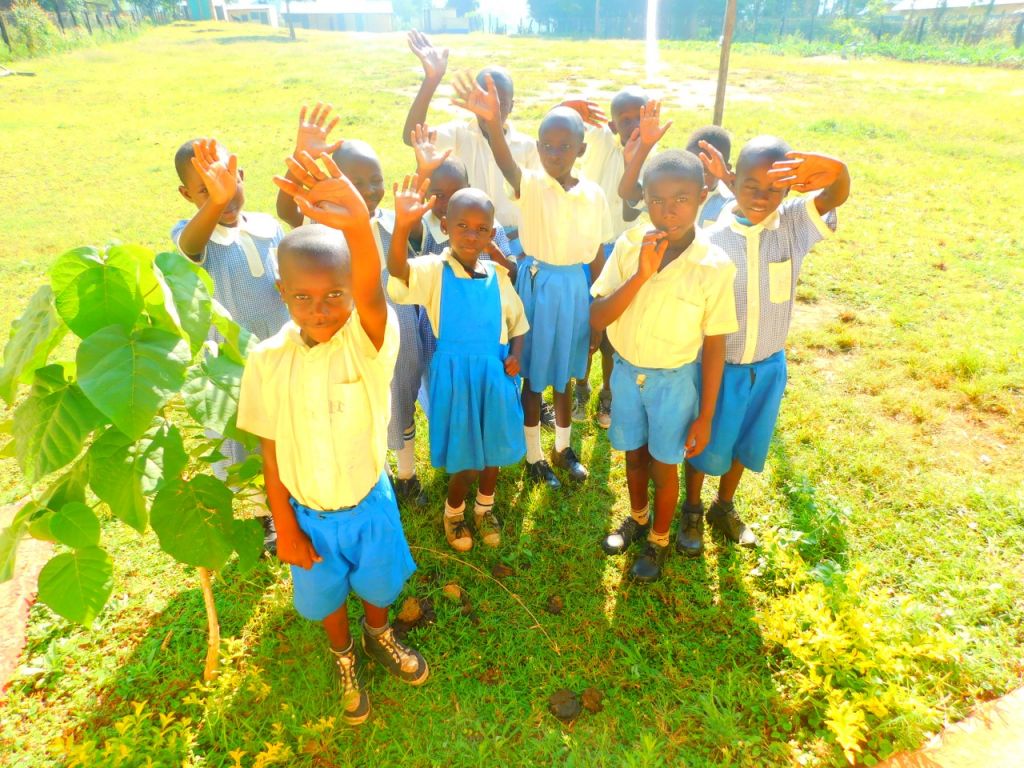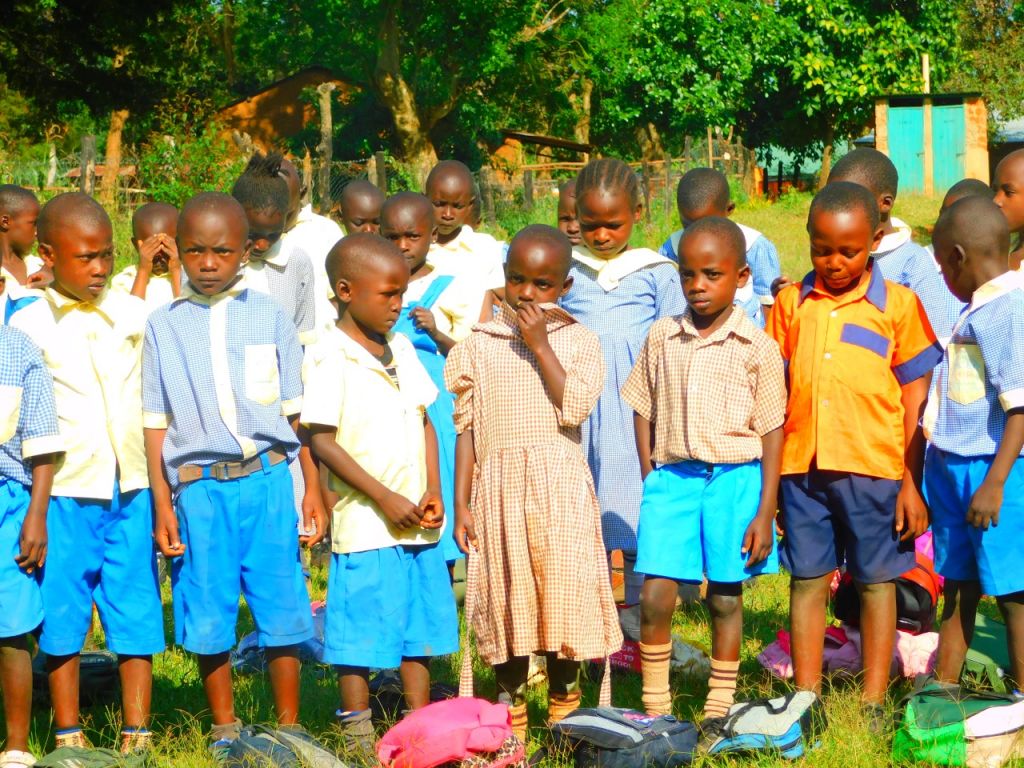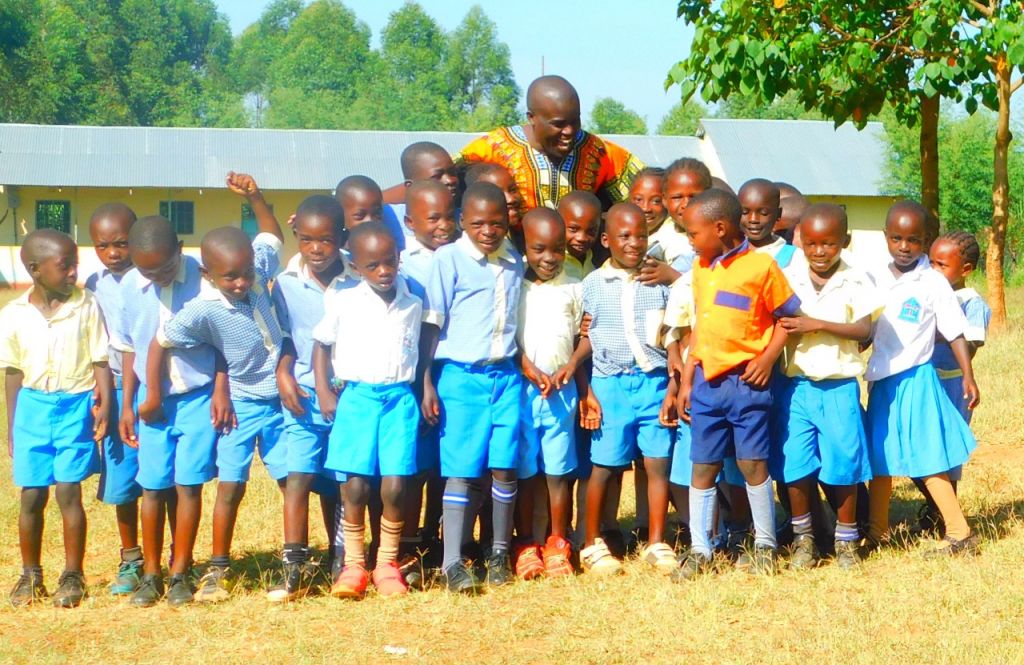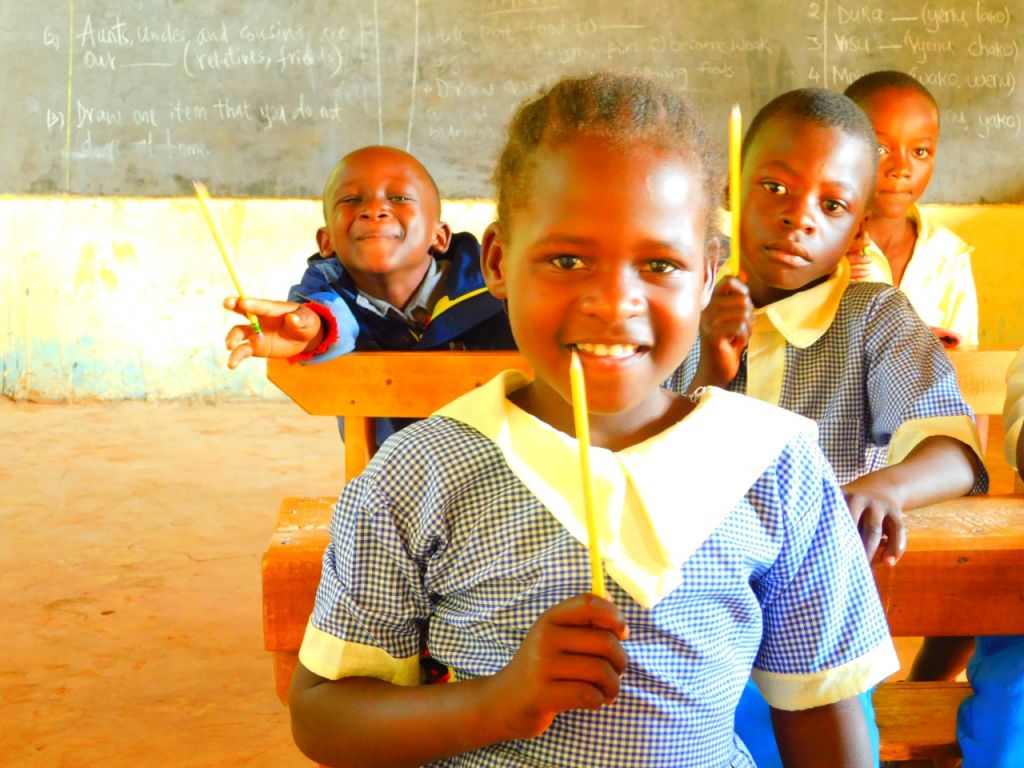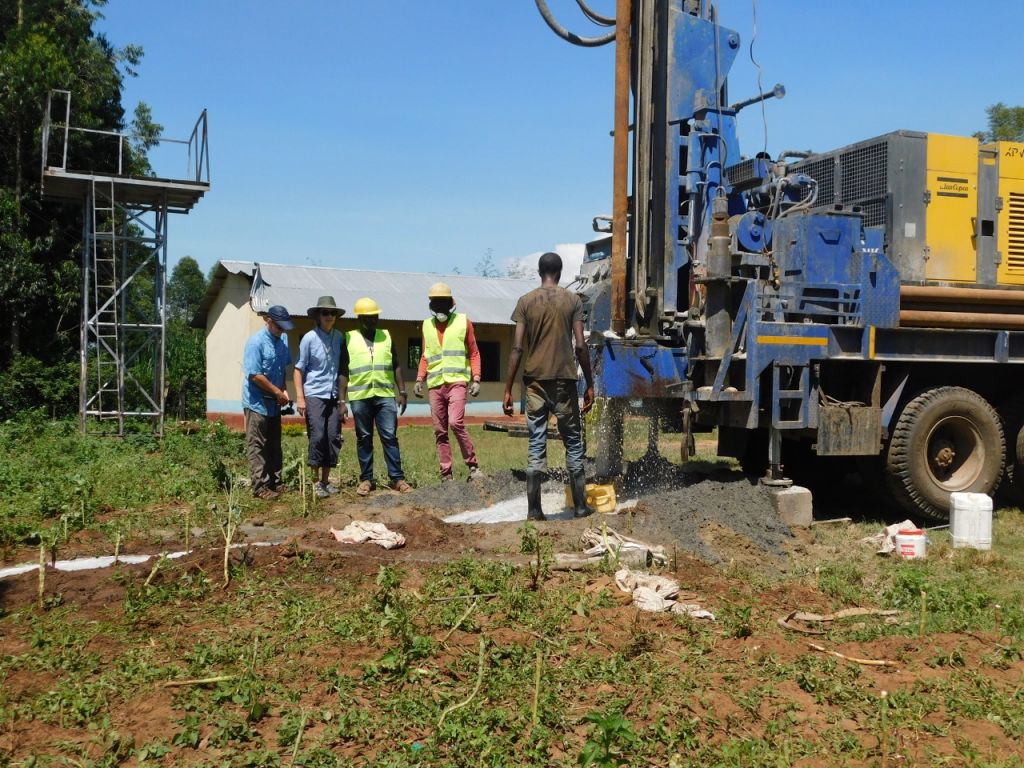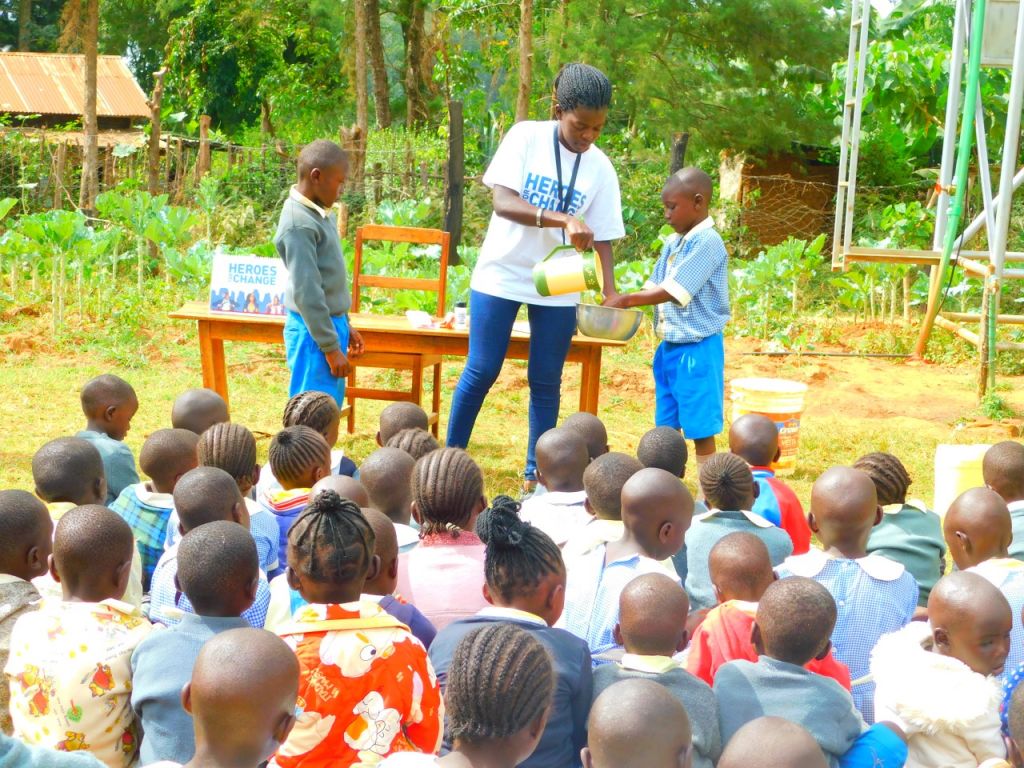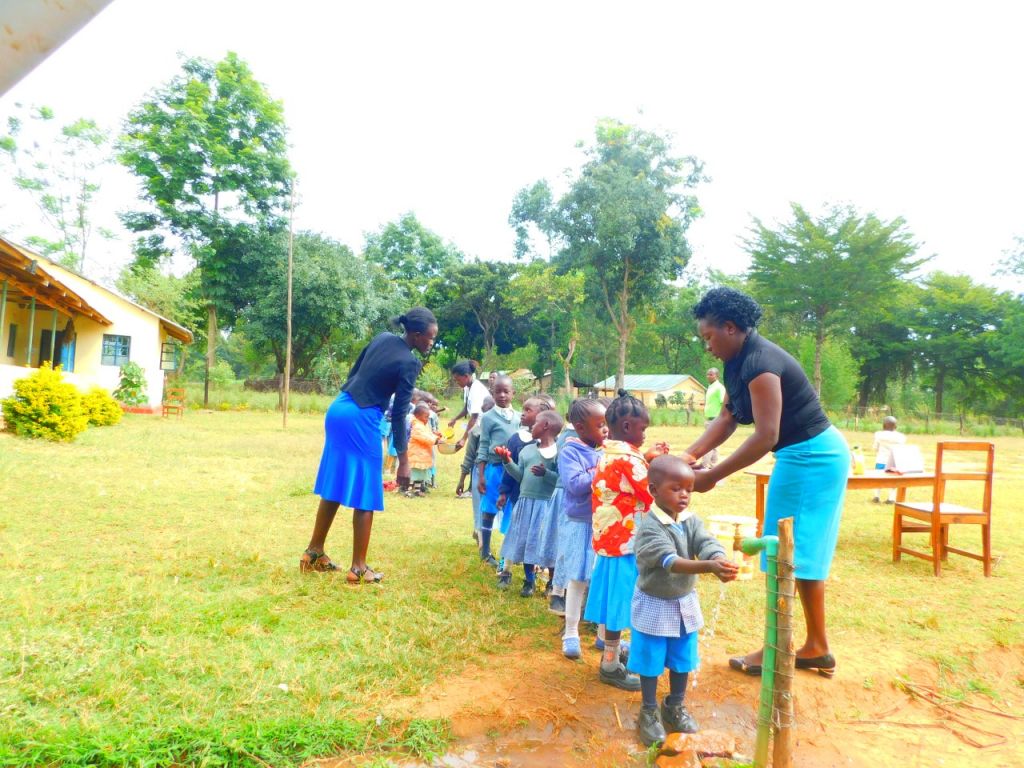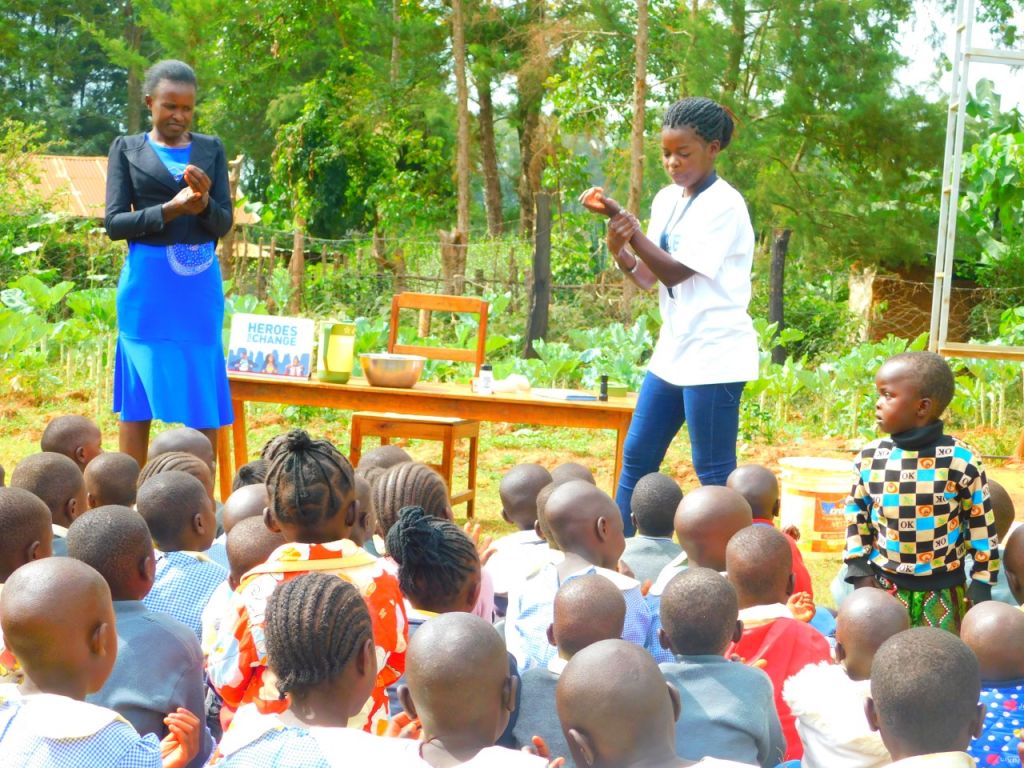1. Learning Centre
HIP Africa centre registered under Kenya’s Ministry of Education (MoE) Reg No: 39P12000102 providing the Competency-Based Curriculum (CBC) system of basic education to learners from rural regions in Kenya since 2016. Aligned with the United Nations’ Global Goals of 2030, HIP Africa relentlessly advocates for Global Goal 4 on the provision of quality and affordable education to all learners. However, quality education alone cannot be fully achieved without the complement and partnership of the other goals.
HIP Africa provides education at pre-primary and primary levels as its main objective. We have competent teachers who ensure proper transition and acquisition of knowledge and skills in Competency-Based Curricular (CBC). Our school has 9 qualified and well-trained staff, handling a total student population of 100(52 boys and 48 girls).
We not only focus on classroom learning but also outdoor activities, such as projects, nature walks, trips, and excursions, where students have direct exposure to the local environment and the outside world.
Since co-curricular activities are also an integral part of a child’s physical and psychological development, HIP Africa creates room for every student to participate in activities such as ball games, racing, rope skipping, song, and dance among others to enhance teamwork, enjoyment, and talent nurturing. Our school also provides equitable learning opportunities to all children, no matter their social or religious backgrounds. As a school, we are on a mission of achieving quality education aligned with the United Nations’ Sustainable Development Goal 4 by fostering early childhood and pre-primary education development that is inclusive, accessible, to attain relevant and positive learning outcomes.
2. School Feeding Program/Kitchen Garden Project.
The school has also set aside a garden where different kinds of vegetables have been grown. This project was established for a variety of reasons such as:
- Providing the school and the community with fresh nutritious vegetables.
- Helping pupils to develop agriculture skills since they are directly involved in taking care of the garden. For example, students learn through land preparation, planting, watering, weeding, and even harvesting.
- Reducing the cost of buying food, because fresh vegetables are locally available in the school.
1 in every 5 children miss school because of poor nutrition or hunger. With a structured system that provides consistent meals to these young learners, there’s the likelihood of reduced absenteeism and increased academic performance of the learners. This is key in the implementation of Global Goal 2 of reducing hunger, achieving food security and improved nutrition, and promoting sustainable agriculture.
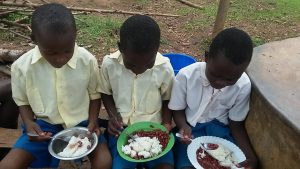
3. Water, Sanitation, and Hygiene (WASH)
Water is life; it’s an essential commodity to not only students at school, but also the entire community. Having a clean and readily available source of water for the school and the community is the same as pumping life into the people of the community. Ensuring healthy livelihoods and well-being for all learners, plays a role in achieving a sustainable development framework for the learners and the community holistically, which is in alignment with Global Goal 3. Before drilling a borehole, we had a problem with getting clean drinkable water for the students. We used to walk miles to fetch water from the river, which is a great risk of exposure to water-borne diseases such as cholera and bilharzia. During dry seasons, water was scarce and getting access to a reliable source of water was almost impossible. We are focusing on drilling more boreholes in places that have water scarcity.
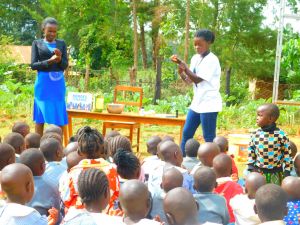
4. Information and Communication Technology (ICT) Program
Access to relevant information and learning resources contributes to the development and learning process of an individual. In particular, for our learners to be globalized, there’s a need for investment in connectivity and infrastructure that supports the implementation of digital learning. As one of the key elements to be achieved under Kenya’s Vision 2030 and United Nations’ Global Goal 4, ICT has become part and parcel of every institution in the country and the need for access to technological devices continues to rise. HIP Africa aims at creating a platform on which every learner will acquire basic computer literacy. This fundamental knowledge is essential as it will help set the learner with basic skills to use computer devices, to solve problems, and communicate effectively. In the long run, these efforts will contribute to bridging the digital divide and reduce the inequities and empower our learners with the relevant skills for self-reliance and decent work.
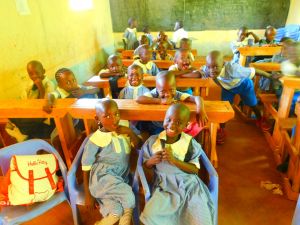
5. Community Based Education (CBE) Program
Effective learning extends beyond the classroom learning. For an education to be effective and impactful, it must adapt to the societal needs and challenges. This is by implementing the knowledge and best practices acquired over time. There is a need for the involvement of the community in students’ learning process. Every member of the community is commissioned with a sense of responsibility to take part in providing a variety of learning experiences to children. This will help enhance awareness and morality among parents/guardians.
Our children get to learn about their immediate cultural set-up and co-exist consciously with parents and neighbors.
CBE aims at creating an avenue for resurrection of a sense of belonging among children as they interact with members of the community.
Students are also given a chance to develop their problem-solving techniques and acquisition of new skills, especially through apprenticeship.
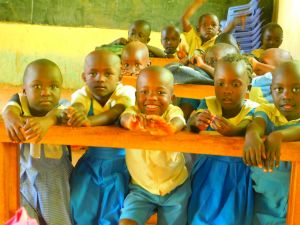
VOLUNTEER PROGRAMS
We welcome teachers wishing to volunteer at our center with an aim of improving or providing teaching and learning exchange services. Our center creates a platform where teachers and students learn from their peers and exchange ideas. Through this program, we are able to accommodate the different pedagogies in teaching and learning approaches that make our center competitive and provide the learner with an open-minded approach.
HIP Africa organization hosts over 50 young students below the age of 6 in its education program. These young learners are of different capabilities and capacities affected by their parental background. Most of them lack complete parental care due to marriage conflicts. They do stay with their guardian or a single parent, that evidently, breaks their mutual love and cognitive growth. Lack of basic needs, such as clothing and food, is also evident amongst this group. Thus, impacting their self-esteem. With poor early age management, the health and learning development of this vulnerable group is undermined. Thus resulting in slow learning ability and a higher chance of school dropout at an older age.
Volunteers are encouraged to express their extensive love and care to our daycare group by providing mutual love, babysitting materials and services, clothing, food, and any other necessities that can strengthen their abilities and capabilities. With much love to them, they can realize their developed future existence through self-belief.
HIP Africa Organization has been on a mission of preventing water borne diseases and fungal infection together with the improvement of nutrition to its students and community. In conjunction with volunteers, we have been able to supply water filters to the community and school to curb water contamination. We have also welcomed health experts at our center to examine infections and propose health measures to our community which has proven to be successful. We, therefore, encourage health volunteers, experts and practitioners at our center to bring their services to our community.
At HIP Africa, we also welcome volunteers who enjoy sports, vocational activities, and training. We have more than 100 youths who need to be engaged in sports and educational activities with an aim of upholding positive youth development and behavioral change. The unemployment crisis and unsupported education needs have led most of them into early marriages, domestic violence, drug abuse and other criminal offenses. The youth prefer to work in people’s farms to earn a living. The younger age, older than 5 years of age, do domestic work (ex. fetching water, cooking, and looking after cattle). The workload imposed on them leaves no room for them to study. They gain little or to no educational impact. Their idleness breeds negative impacts on their life. All in the name of living. There is a need for mentorship, empowerment, and nurturing of talents to change and improve their well being.
A volunteer can organize a tournament, a talent search show, a training, or a social work activity that can make our youth engaged, proactive,and results-oriented to change their lives.
A volunteer can decide to donate or reward participants with related rewards of his/her choice.
